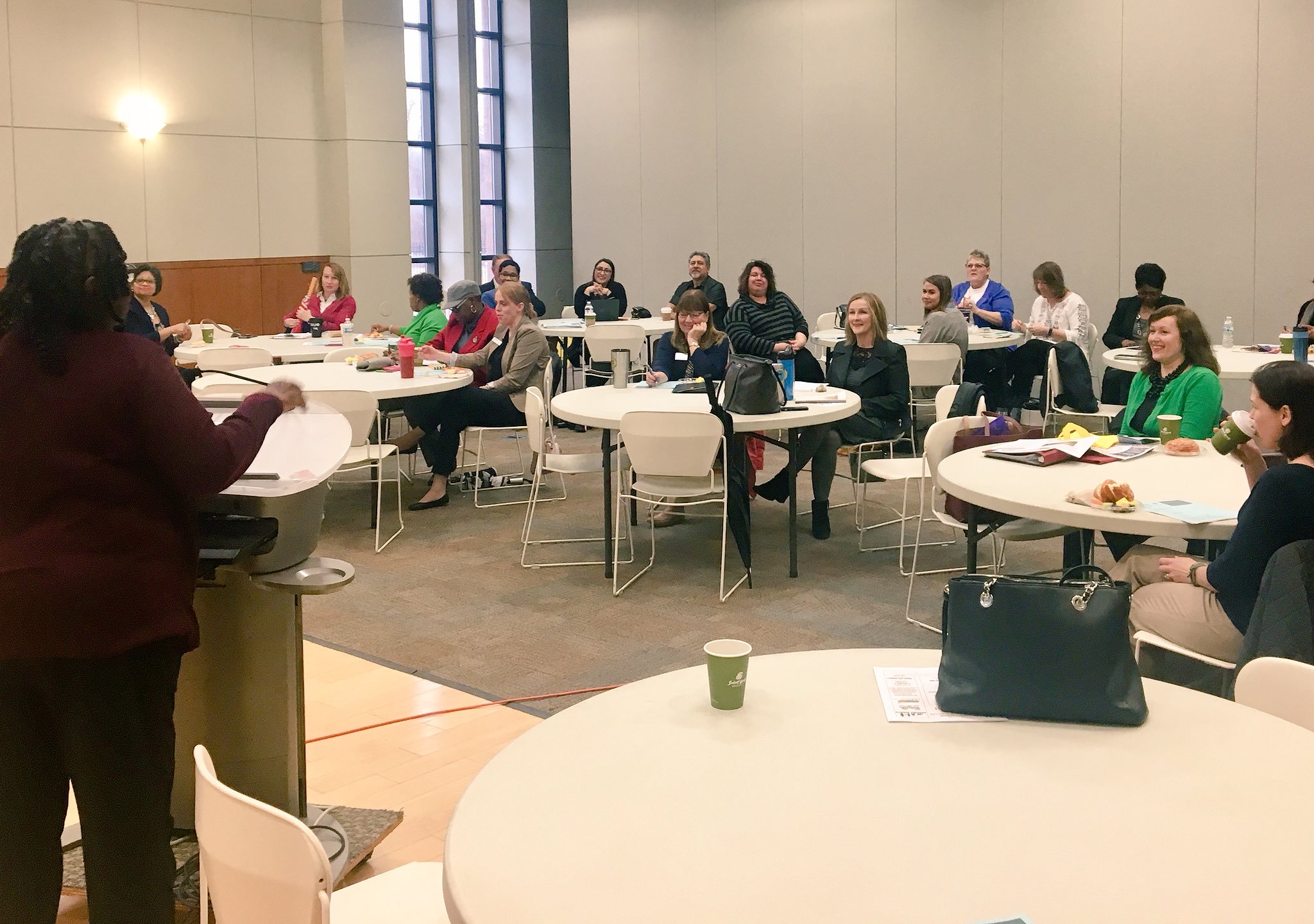About the Early Development Instrument

Erikson Institute staff facilitates a meeting about the EDI project with community stakeholders in the Village of Oak Park.
Advances in neuroscience and the behavioral and social sciences indicate that early life experiences form the foundation for educational achievement, as well as lifelong health, economic productivity, and responsible participation in society.1 The Early Development Instrument (EDI) is a population measure that provides a snapshot of children’s health, development and school readiness in the context of their neighborhood.
The EDI process fosters a community-level understanding of child development that can inform more precise ways to support positive child outcomes. It compels stakeholders to look at the supports and resources available to young children prior to entering school and assess how the community, as a whole, can better support early child development and prepare children for school. The EDI can also inform how to address the needs of the current cohort of kindergarten children as they progress through school.
The EDI was created in 1998 by Dan Offord and Magdalena Janus at the Canadian Centre for the Study of Children at Risk (now known as the Offord Centre for Child Studies at McMaster University) in Toronto and remains in use throughout Canada and many countries around the world. The University of California Los Angeles’ (UCLA) Center for Healthier Children, Families and Communities has been implementing the tool in more than 55 communities across the U.S. since 2009.
“Without knowing how all children are developing, schools and communities are left guessing. This is what makes EDI data so important.”
-- The Offord Centre for Child Studies at McMaster University

The Greater East St. Louis Early Learning Partnership convenes stakeholders to discuss their EDI data and ways to drive change and action in their community.
The EDI was created in 1998 by Dan Offord and Magdalena Janus at the Canadian Centre for the Study of Children at Risk (now known as the Offord Centre for Child Studies at McMaster University) in Toronto and remains in use throughout Canada and many countries around the world. The University of California Los Angeles’ (UCLA) Center for Healthier Children, Families and Communities has been implementing the tool in more than 55 communities across the U.S. since 2009.
1 Shonkoff, J. (2011). Protecting Brains, Not Simply Stimulating Minds. Science, 333 (6045), 982983.